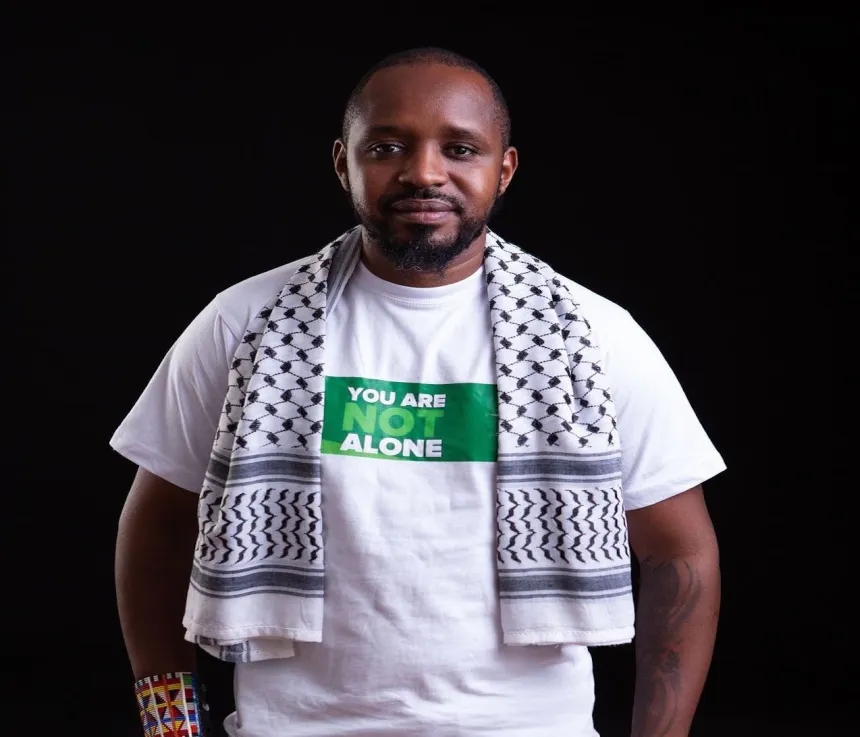Human rights activist Boniface Mwangi was arrested on Saturday by officers from the Directorate of Criminal Investigations (DCI) at his home in Lukenya, Machakos County. The arrest has sparked concern and confusion, with authorities accusing the vocal activist of facilitating terrorism during the June 25 nationwide protests.
Mwangi, known for his outspoken stance against government oppression, was reportedly taken to his Kilimani office, where police conducted a search and seized several items. According to a statement released by the DCI on Sunday morning, the recovered items included two mobile phones, a laptop, notebooks, nine external hard drives, two additional laptops, tear gas canisters, a blank 7.62mm round, company stamps and seals, cheque books, and stamp duty documents.
The DCI claims Mwangi is being held at Pangani police station and will be arraigned on Monday to face charges of facilitating terrorist acts and unlawful possession of ammunition.
However, the activist’s whereabouts remain unclear, as conflicting reports emerge from different arms of the security apparatus. His wife, Njeri Mwangi, expressed uncertainty about his location, saying she was headed to Pangani to confirm his state. “They cited terrorism and arson during the arrest,” she told the media.
Vocal Africa CEO Hussein Khalid also expressed concern about Mwangi’s whereabouts. “We are not sure where he is. Police are giving conflicting information. Pangani are saying he’s been moved out. DCI are saying he’s at Pangani,” said Khalid.
Mwangi’s arrest comes amid a heightened crackdown on activists and youth leaders following the June 25 protests, which were largely organized online under the Gen Z-led “Occupy Parliament” movement. The demonstrations were held in response to the controversial Finance Bill 2024, which has since been withdrawn.
Rights groups and civil society organizations have called for Mwangi’s immediate release and transparency in the legal process. Many fear that the charges against him are politically motivated and aimed at silencing dissent.
As Kenyans await Monday’s court proceedings, the case is drawing national and international attention, raising serious questions about freedom of expression and the state’s use of anti-terror laws against government critics.

